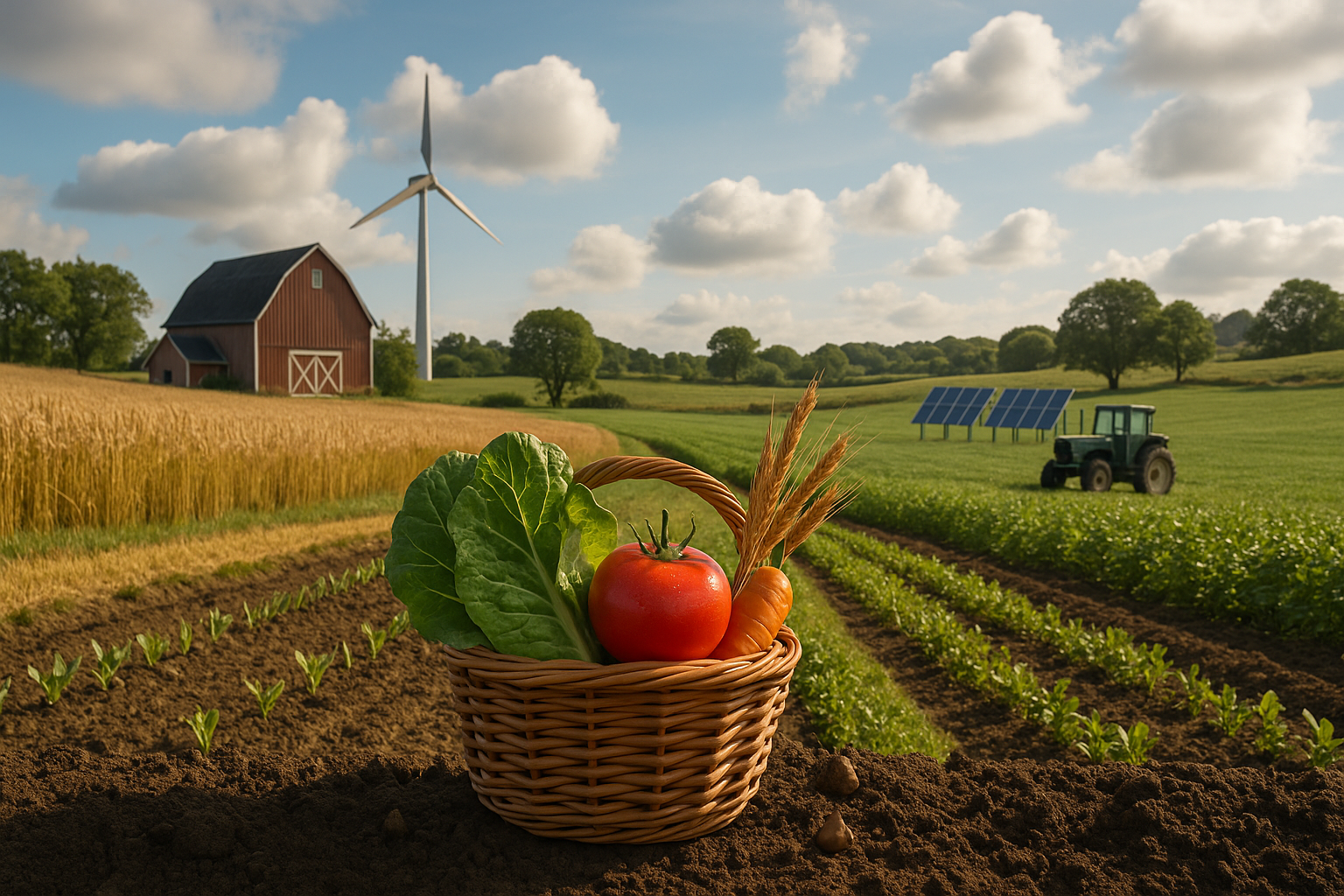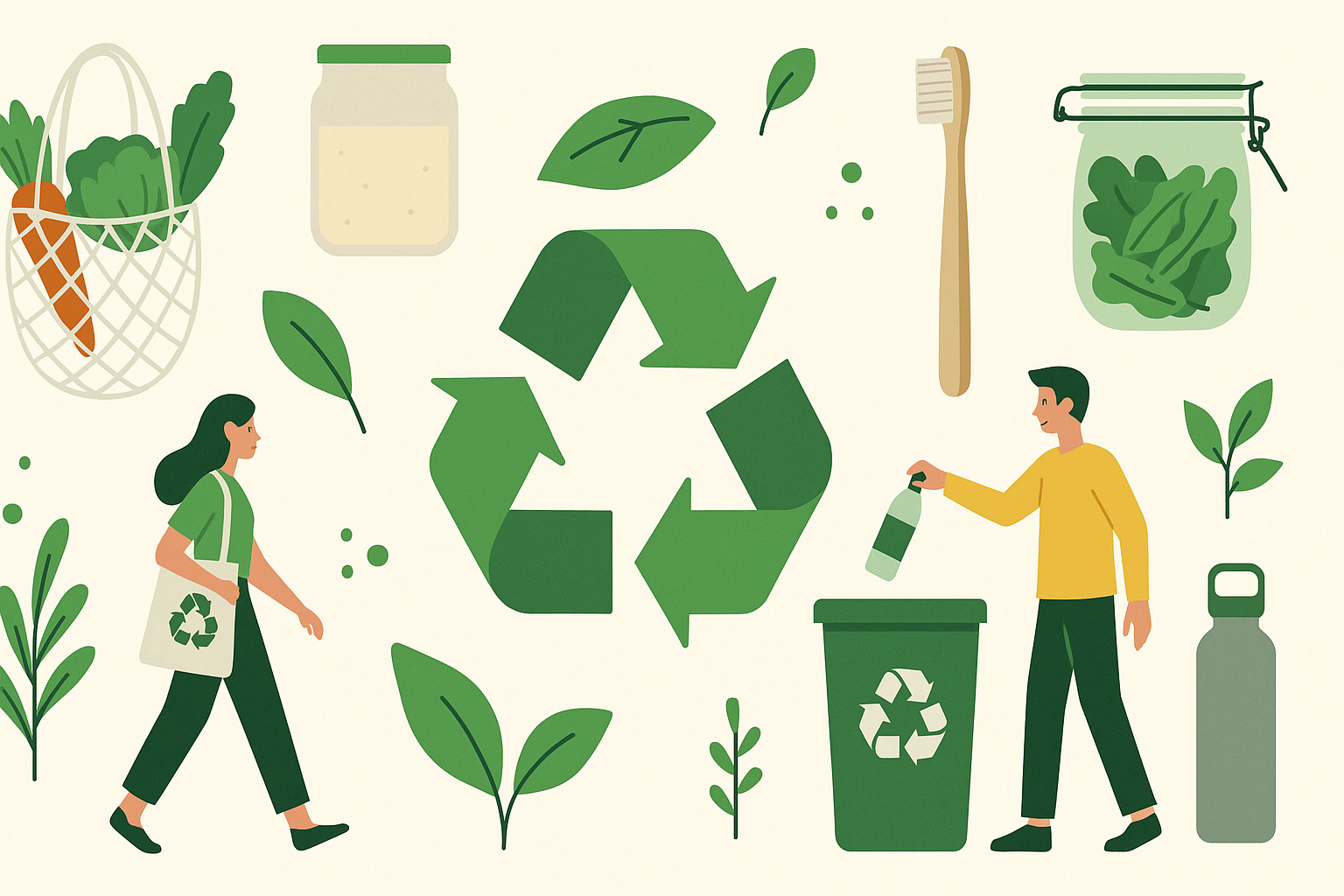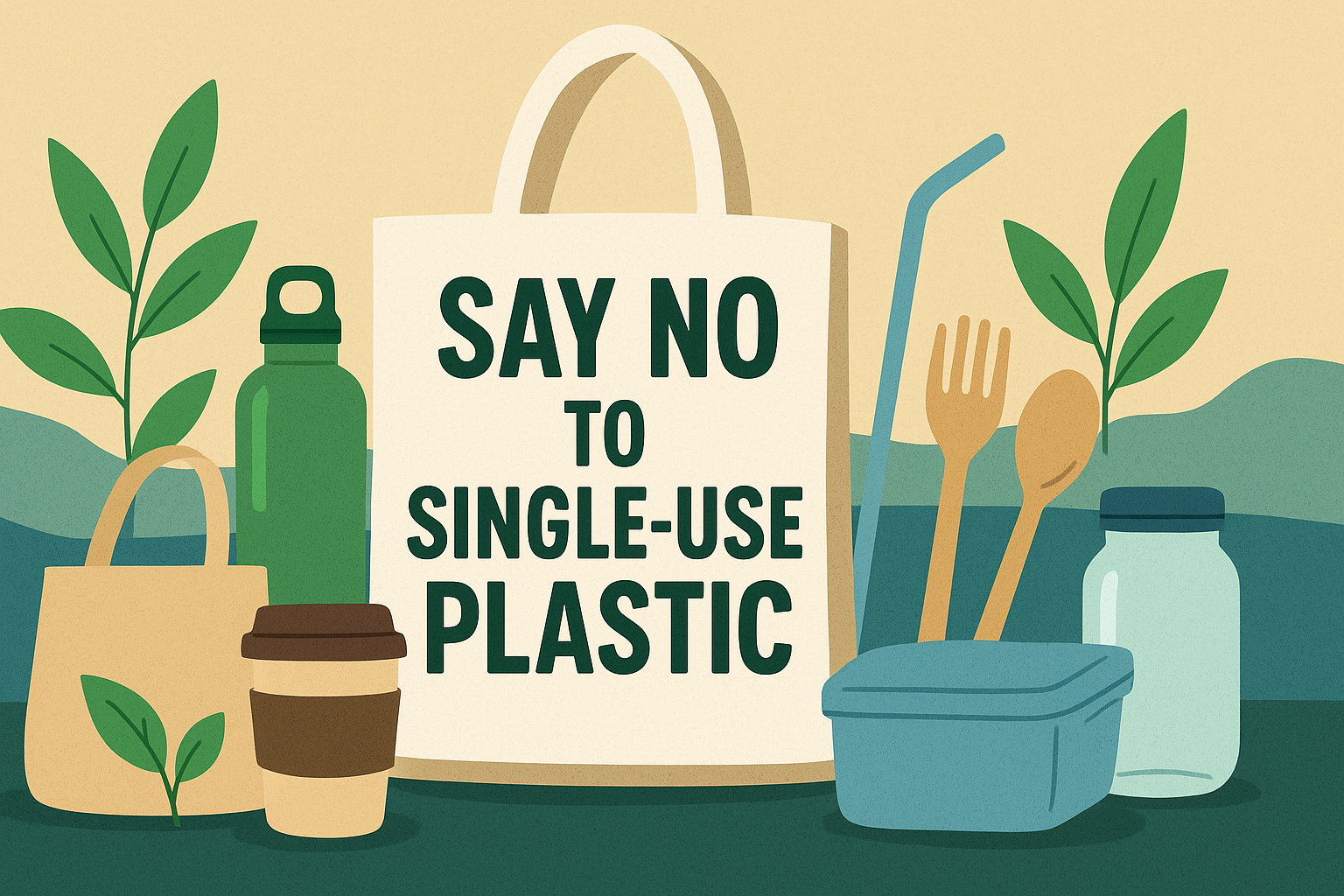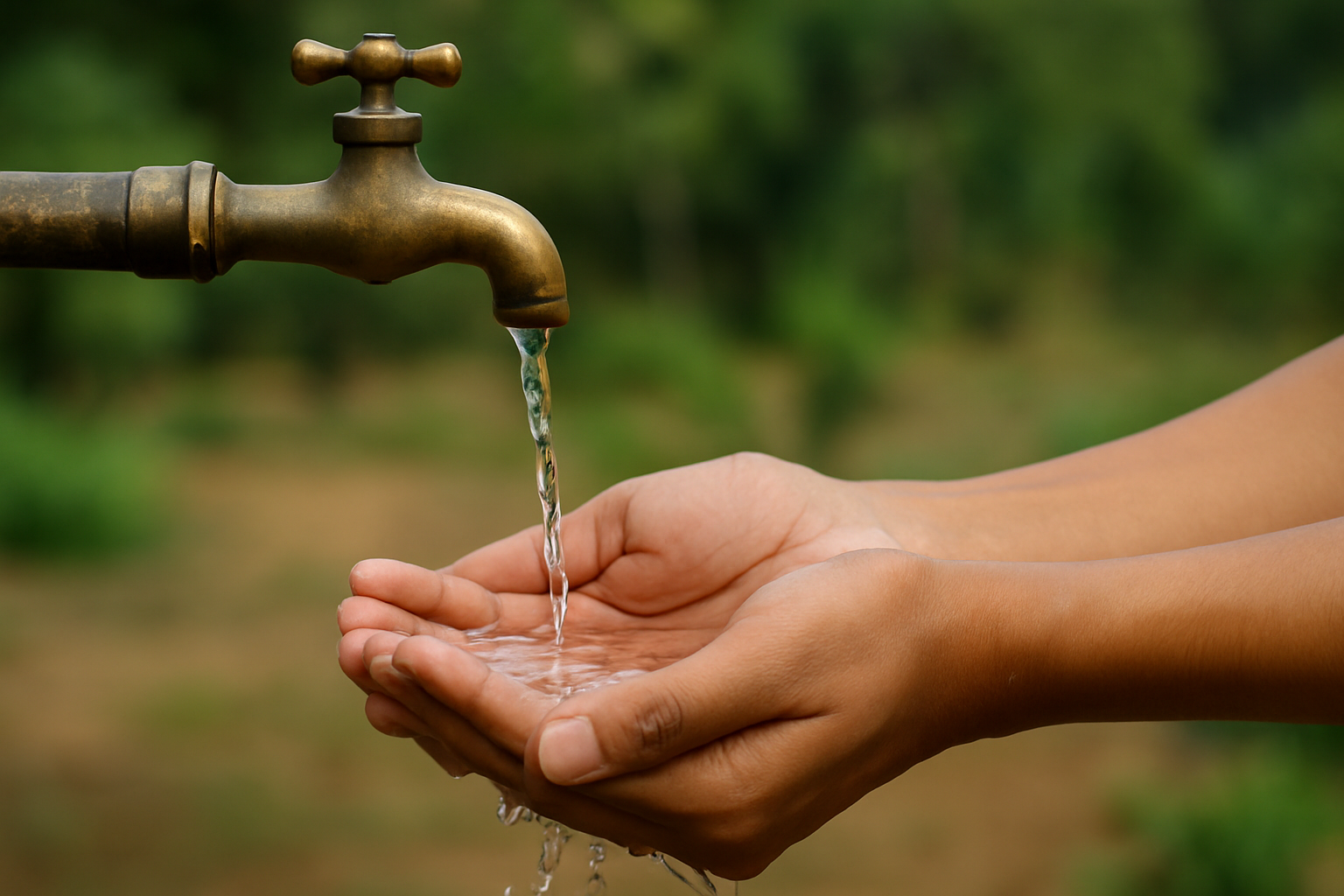In today's fast-changing world, how we produce, transport, and consume food is no longer an individual option but something we have in common. With increasing climate change, natural resources are being depleted, and human beings are growing, so adopting sustainable food systems has become a crying need.
What is a Sustainable Food System?
A sustainable food system is one that promotes food security and nutrition for everyone in an ecological, economic, and social manner. It:
• Minimizes pollution and waste
• Promotes biodiversity and ecosystem well-being
• Ensures equitable livelihoods for farmers and workers
• Encourages healthy, accessible food for all
It's about growing enough to feed the planet without sacrificing its ability to nourish its future population.
The Urgency of the Shift
Our contemporary food system is resource-hungry and industrialized. Think about it:
• We get more than 30undefined of greenhouse gas emissions worldwide from agriculture
• More than 1/3 of global food is lost or wasted
• Most of the habitable land on Earth is degraded through over-cultivation and the use of chemicals
• Millions remain hungry, while obesity and diet-related diseases increase
This imbalance means an unsustainable trajectory - socially, environmentally, and economically.
Why Adopting Sustainable Food Systems Is Non-Negotiable?
Shifting to sustainable food systems is not idealistic speech - it's a necessity. Here's how it can benefit:
1. Preserve Natural Resources
Sustainable farming conserves water and soil, avoids fertilizer overuse, and minimizes the use of chemical pesticides.
2. Mitigate Climate Change
Reduction of emissions through regenerative agriculture, lower meat production, and local supply chains lower the carbon footprint of the food system.
3. Improve Food Security
An agroecological food system guarantees access to healthy and affordable food - particularly during times of economic or climate crises.
4. Support Public Health
Promoting plant-based, lightly processed diets lowers the incidence of diseases such as diabetes, obesity, and cardiovascular disease.
5. Empower Communities
Resilient systems construct local economies, equitable trade, and respected farmworkers.
Principles of a Sustainable Food System
In order to create and sustain such systems, these following principles must become the cornerstone:
• Regenerative agriculture (rotation crops, composting, agroforestry)
• Shorter supply chains (local markets, season eating)
• Reducing waste (production, retail, consumer)
• Equity and inclusion (fair pay, land, access to food)
• Health and nutrition focus (diverse whole foods, not ultra-processed)
How We Can Support Sustainable Food Systems
We can all do our part - consumers, companies, and institutions. Here are a few pragmatic ways in which individuals, business, and institutions can help:
For Consumers:
• BUY Seasonal and Local: Purchase locally grown fruits and vegetables in season at farmers' markets to minimize food miles and nurture local agriculture.
• LESS Food Waste: Plan meals, store food well, and creatively uses leftovers to minimize waste.
• ADAPT Plant-Based Diets: Add more grains, legumes, fruits, and vegetables. One meat-free day a week can make a significant difference.
• READ Labels and Certifications: Buy Fair Trade, organic, and sustainably certified products.
• Plant Your Own Veggies: Even home herb gardens have the potential to lower dependence on processed foods and create an appreciation of the food cycle.
For Businesses and Retailers:
• Responsibly Source: Find sustainable suppliers and make transparency in the supply chain a priority.
• Slash Packaging Waste: Make the move to compostable or reusable packaging.
• Educate Consumers: Use your platform to encourage sustainable behavior and inform consumers.
For Policy Makers
• Support Smallholder Farmers: Provide subsidies and training in sustainable methods.
• Incentivize Sustainable Innovation: Fund R&D for climate-resilient fruits and vegetables, clean transportation, and intelligent logistics.
• Enact Food Waste Policy: Require surplus food to be redistributed and fine excess waste.
Positive Change Case Studies
The Netherlands:
With scarce land, the nation uses innovative vertical farming, hydroponics, and technology to become one of the world's leading agricultural exporters - sustainably.
India:
Farmers nationwide are embracing natural farming, substituting cow dung and ancient methods in place of chemicals to enrich soil and harvest more.
Sweden:
Grocery stores and mobile apps such as Karma are combating food waste by offering excess food cheaply, while consumers get affordable meals.
These are merely a few examples of how sustainable systems not only are possible - literally thriving everywhere around the globe.
The Road Ahead
The future of food is not feeding the many - it's feeding them decently, justly, and without devastation.
For global food sustainability to exist, collaboration needs to occur in industries, nations, and societies. Policy reform and innovation are important, yet consumer demand acts as a strong catalyst. Every purchase, every bite, and every voice counts.
Final Thoughts
Food is deeply personal - but also politic, environmental, and moral. Shifting toward sustainable food systems is more than what we consume, but why and how we select it.
It is time to move beyond convenience and profit-over-people consumption to a smarter, more ethical means of nourishing the world.
Because the real cost of unsustainable food is one, we can all afford to pay.
related Articles
Reduce Waste
Waste is currently one of the biggest environmental problems which we are faced with in today's world. Plastic packaging and wasted food, computer hardware and clothing are all products that keep mounting on our planet at a menacing pace. The World Bank informs us that over 2 billion tons of municipal solid waste are generated globally each year, and this is expected to double dramatically unless something is done about it.
Say No to Single Use Plastic
Plastic is the paradox of our age: a substance so practical, yet so deadly. From bags and wrappers to bottles and knives, single-use plastics are meant for convenience but earmarked for catastrophe. They last us minutes, occasionally seconds, but on this planet for hundreds of centuries.
Save Water : Every Drop Counts
Water is life - as straightforward as it gets. Every living organism on this planet, from the smallest ant to the highest tree, requires water to live. And yet we take this wonderful resource for granted. The reality is, fresh water is depleting quicker than we realize. But there is good news: we can turn things around. One drop at a time.
Save Energy: Small Changes, Big Impact
From the lightbulb at home to the phone in your hand, energy surrounds us. But with use comes responsibility. Energy isn't infinite. The more we squander it, the more we harm our world. Energy saving does not just concern the payment of lower bills but securing a better future for ourselves and the generations to come.




